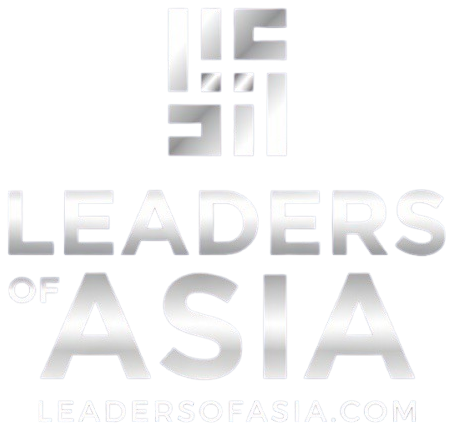Pioneering Digital Transformation: The Vision of Dr. Umar Saif
In an era where technology serves as a catalyst for societal advancement, Dr. Umar Saif emerges as a luminary in Pakistan’s journey towards digital empowerment. A distinguished computer scientist and visionary entrepreneur, Dr. Saif’s endeavors have not only modernized the nation’s IT infrastructure but have also laid the groundwork for a more inclusive and innovative Pakistan.
From his academic pursuits at esteemed institutions to his instrumental role in public sector reform, Dr. Saif’s trajectory is a testament to the profound impact that strategic technological integration can have on national development.
Academic Foundations and Global Exposure
Dr. Umar Saif’s academic journey commenced at the Lahore University of Management Sciences (LUMS), where he earned his Bachelor’s degree in Computer Science. His quest for knowledge led him to the University of Cambridge, where he completed his Ph.D. in Computer Science, and subsequently to the Massachusetts Institute of Technology (MIT) for postdoctoral research.
At MIT’s Computer Science and Artificial Intelligence Laboratory (CSAIL), Dr. Saif contributed to Project Oxygen, a groundbreaking initiative aimed at developing pervasive computing environments. His involvement in such high-caliber research projects honed his expertise and prepared him for the challenges of transforming Pakistan’s digital landscape.
Revolutionizing Public Sector IT: Leadership at PITB
Upon returning to Pakistan, Dr. Saif assumed the role of Chairman at the Punjab Information Technology Board (PITB). Under his stewardship, PITB underwent a metamorphosis, evolving into a hub of innovation and efficiency. Dr. Saif spearheaded over 300 projects that digitized various facets of governance, including land records, police operations, and health services.
Notably, his initiatives led to the development of an early warning system for dengue fever, leveraging smartphone technology to monitor and control outbreaks. This integration of technology into public health exemplifies Dr. Saif’s commitment to utilizing IT solutions for societal benefit.
Fostering Innovation: Establishing ITU and Plan9
Recognizing the need for a robust tech ecosystem, Dr. Saif founded the Information Technology University (ITU) in Lahore, serving as its inaugural Vice Chancellor. ITU quickly became a beacon for aspiring technologists, offering cutting-edge programs and fostering a culture of research and innovation.
Complementing ITU’s academic offerings, Dr. Saif launched Plan9, Pakistan’s first government-backed technology incubator. Plan9 has been instrumental in nurturing startups, providing them with the resources and mentorship necessary to thrive in a competitive landscape.
National Impact: Policy and Infrastructure Development
Dr. Saif’s influence extended beyond provincial boundaries as he took on roles at the national level. As the Federal Minister for Information Technology and Telecommunications, he championed policies that bolstered IT exports and improved digital infrastructure. His tenure saw the approval of Pakistan’s first National Space Policy and the establishment of the National Cyber Crime Investigation Agency (NCCIA), reflecting his strategic vision for the country’s technological advancement.
Recognition and Global Engagement
Dr. Saif’s contributions have garnered international acclaim. He was named among MIT Technology Review’s top 35 innovators under 35 and received the prestigious Sitara-i-Imtiaz for his services to Pakistan. His appointment as UNESCO Chair for using ICT for Development underscores his commitment to leveraging technology for societal progress.
Beyond accolades, Dr. Saif has engaged with global platforms, sharing insights and collaborating on initiatives aimed at harnessing technology for development. His work continues to inspire technologists and policymakers worldwide.
From Labs to Leadership: Bridging Research and Real-World Impact
Dr. Umar Saif’s rare ability to transition from high-level academic research into practical, scalable solutions has been pivotal in shaping Pakistan’s digital transformation. His postdoctoral work at MIT and academic foundation from Cambridge equipped him with deep technical knowledge, but his defining achievement has been his commitment to translating that knowledge into action on the ground in Pakistan.
Unlike many researchers who remain in the academic sphere, Dr. Saif applied his learnings to address real-world governance issues. His tenure at PITB exemplifies this approach. From digital crime mapping to automating government workflows, he directed research into tangible applications that not only optimized bureaucratic processes but also made them accessible, transparent, and efficient for the average citizen.
His interdisciplinary approach—marrying data science, software engineering, public administration, and citizen engagement—has elevated Pakistan’s tech governance model and inspired a new generation of tech-savvy reformers.
A New Era of E-Governance: Transforming Bureaucracy with Code
Under Dr. Saif’s leadership, the Punjab Information Technology Board became synonymous with digitization in governance. His goal was ambitious but clear: eradicate inefficiencies, improve service delivery, and bring transparency to public administration using modern IT tools.
Among his flagship e-governance reforms was the computerization of land records. For decades, the land titling process in Pakistan was riddled with corruption, manual errors, and opaque systems. Dr. Saif’s team developed an integrated digital land records management system, significantly reducing the room for manipulation and cutting down the time required for property transfers.
Another milestone was the automation of police operations through mobile-enabled apps, biometric verification systems, and real-time crime reporting dashboards. These tools empowered law enforcement officers with data and enabled faster response times. They also provided a new level of oversight, ensuring accountability within the police force—long considered a challenge in Pakistan.
Health, education, and agriculture departments also saw similar digital revolutions. Data-driven school monitoring systems helped reduce absenteeism among teachers, and digitized vaccination tracking ensured coverage across remote districts. Dr. Saif’s strategic use of open-source technologies made these solutions cost-effective and scalable, allowing smaller provincial units to replicate them.
Nurturing the Startup Culture: Building Ecosystems, Not Just Apps
While Dr. Saif is celebrated for his work in the public sector, his contributions to Pakistan’s entrepreneurial ecosystem are equally groundbreaking. Recognizing the need for a structured startup culture in the country, he launched Plan9, Pakistan’s first government-backed tech incubator. Unlike traditional grant-based models, Plan9 introduced mentorship-driven incubation, seed-stage support, and access to global networks.
Plan9 was soon followed by PlanX, a scale-up accelerator program designed for more mature startups. These initiatives became catalysts for innovation, offering startups resources they had never previously accessed: co-working spaces, legal and accounting support, pitching sessions with international VCs, and demo days.
Dozens of notable tech companies in Pakistan trace their roots back to Plan9. These startups span fintech, healthtech, edtech, and e-commerce—underscoring Dr. Saif’s belief that a strong, diverse digital economy is essential for long-term national growth.
His emphasis on sustainable entrepreneurship—rather than copy-paste Silicon Valley models—led to incubators that were responsive to Pakistan’s socio-economic realities. As a result, these ventures created jobs, encouraged youth leadership, and brought digital solutions to everyday problems.
Institutionalizing Innovation: Founding Information Technology University
To cement innovation in Pakistan’s academic framework, Dr. Saif founded the Information Technology University (ITU) in Lahore. As the founding Vice Chancellor, he envisioned ITU as more than a technical school—it would be an innovation hub, research powerhouse, and thought-leadership institute.
He brought in top-tier faculty, introduced world-class curricula modeled on MIT and Stanford, and embedded startup culture directly into student life. ITU housed research centers in data science, robotics, and public policy, creating a unique intersection between academia, entrepreneurship, and governance.
ITU also emphasized inclusivity, offering scholarships and initiatives aimed at increasing female participation in STEM fields. This focus on diversity has helped close gender gaps in tech education and created role models for young women aspiring to join Pakistan’s technology space.
Tech for the People: Digital Inclusion and Citizen Empowerment
Dr. Saif’s work consistently underscores a deep-rooted belief: technology must be for everyone—not just the privileged few. His projects are not only innovative; they are inclusive.
Whether it was mobile apps for farmers providing crop advisory in regional languages, or telemedicine platforms for rural clinics lacking specialized doctors, his mission has been to democratize access. By focusing on low-cost, scalable technologies—especially mobile-first platforms—he ensured that even remote communities benefit from digital innovation.
Perhaps most notably, he advocated for open data policies in the public sector. Through citizen-centric platforms like Rasta (a traffic management app), dengue monitoring dashboards, and the Online College Admissions System (OCAS), Dr. Saif made government data available, navigable, and actionable for the average citizen.
His emphasis on civic tech has made him a pioneer in ICT4D (Information and Communication Technologies for Development) in South Asia.
A Thought Leader with Global Resonance
Dr. Umar Saif is not just a national reformer—he is a global voice in the conversation around digital governance and inclusive technology. As a UNESCO Chair for using ICT for Development, he has participated in international forums and policy dialogues that influence tech deployment in the Global South.
His recognition by MIT Technology Review as one of the world’s top innovators under 35 placed him alongside peers like Mark Zuckerberg and Larry Page, showcasing Pakistan’s emerging talent on a global stage. In addition to receiving the Sitara-i-Imtiaz, Dr. Saif has also served on various advisory boards, including the World Bank, USAID, and the UN.
He represents a unique fusion of academic brilliance, entrepreneurial agility, and public-sector integrity—an increasingly rare blend in today’s tech-driven governance circles.
Conclusion: A Legacy of Innovation and Empowerment
Dr. Umar Saif’s journey epitomizes the transformative power of technology when guided by visionary leadership. His multifaceted initiatives have not only modernized Pakistan’s IT infrastructure but have also empowered citizens and fostered a culture of innovation. As the nation continues to navigate the digital age, Dr. Saif’s legacy serves as a blueprint for integrating technology into governance and development.
Through his unwavering dedication, Dr. Saif has demonstrated that with strategic vision and commitment, technology can be a formidable force for positive change, propelling societies towards a more equitable and prosperous future.






